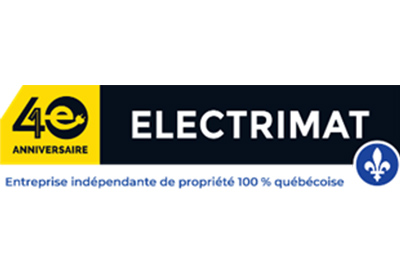Eric Tordjman – Vice President, Mercury Lighting

Headquartered in Concord, Ontario, Mercury Lighting services national retail, multi-residential/commercial property management, energy service companies (ESCO), and auto dealerships, “from design to specifications, we offer turn-key services that go beyond the typical distributor model,” explained Mercury Lighting Vice President, Eric Tordjman. Their value-added approach leverages well-established supplier relations to help clients find a lighting solution that suits their needs.
“How we differentiate ourselves is we’re lighting specific, we do very little in the way of electrical,” said Eric, adding, “and really emphasizing our expertise towards solutions selling. Meaning: we have a warehouse full of leading-edge lighting products, but that doesn’t matter to anyone, we sell a solution based on each and every client.”
“Everything from supplying day-to-day requirements (MRO/Maintenance, Repair and Supply), as well as driving lighting solutions in new construction and lighting retrofits,” noted Eric elaborating on the added value solutions they provide to clients.
Founded in 1959, Mercury Lighting’s focus was originally multi-Residential property management, “Day-to-day supply, long-life products, specialized requirements, and also the generic light bulb requirements,” explained Eric. “Over the past 20-years we’ve morphed into more of a solution-based selling, meaning more fixturing, and a wider range of products – we went from 2,000 SKUs to 8,000 SKUs pretty quickly, and this was pre-LED!”
Incorporating that solution-based approach helped differentiate Mercury in an increasingly competitive marketplace. It was something that came out of necessity for one of their client’s, who found they didn’t have the in-house knowledge to manage the lighting products they were bringing in, creating inefficiencies, overlap, and unnecessary expenses.
“It was a matter of seeing where the difficulties were, and some of the hurdles our customers were experiencing.”
Eric explained this new approach was based on the idea of, “how can we work with different segments, not based on how we work, but what does the clientele really, really want?”
“When we work on new construction projects, we do a lot of work with architects and engineers, we spend a fair bit of time helping them specify product, choosing the right solution, confirming with the client and then confirming that the right material was installed,” he said, elaborating on their process.
“It’s the little things that make the most of our differentiation,” he said.
Mercury Lighting has been an AD member for five years, now, and over this time AD has become integral to their operations.
Eric noted that it was a newfound friend who introduced him to the benefit AD could provide Mercury Lighting. “She was one of those people that opened my eyes to a world I wasn’t aware of. We knew of buying groups, we knew of marketing groups; we understood what they did, but we didn’t see the inherent value.”
Eric continued, “She introduced me to AD, I had some really interesting conversations with them and joined shortly thereafter.”
“AD has become an integral part of our lives, it become a part of who we are, how we associate with the market, how and why we approach vendors. Its driven a lot of what we do to succeed,” he added.
Coupled with their value-add approach to sales, AD Rewards has given them an edge over major e-commerce platforms that can afford to undercut market value. AD Rewards Inside Sales Program works well for Mercury. Eric explained that because their sales team is focused more on solutions, AD Rewards gives added incentive to sell product lines from other AD members which ultimately helps solidify supplier relationships, a core aspect of their success. It also helps our staff learn more about the value-added vendors who we do business with their current offering.
“It was the type of thing we would aspire to but would never know how to do,” he said of the AD Rewards program. AD gave it to us on a silver platter, ‘here’s a system that can compensate selling, reward your customers, but more than anything it could encourage behaviour based on information and value,’” he said.
“We really gravitated towards it, not early on,” he conceded, “it took us a little while to bite because we were hesitant. We had to incorporate it into our psyche to understand how it would be received by our clients.”
Once they saw how it worked, AD Rewards became a key element for them.
“That’s where AD came around and explained to us how to apply it, how to sell it, how to feature it and I can see how it has begun to benefit our relationship with our clients. The rewards program is proving its value through added value to our clients.”










![Guide to the Canadian Electrical Code, Part 1[i], 26th Edition– A Road Map: Section 56](https://electricalindustry.ca/wp-content/uploads/2022/11/Guide-CE-Code-2.png)



